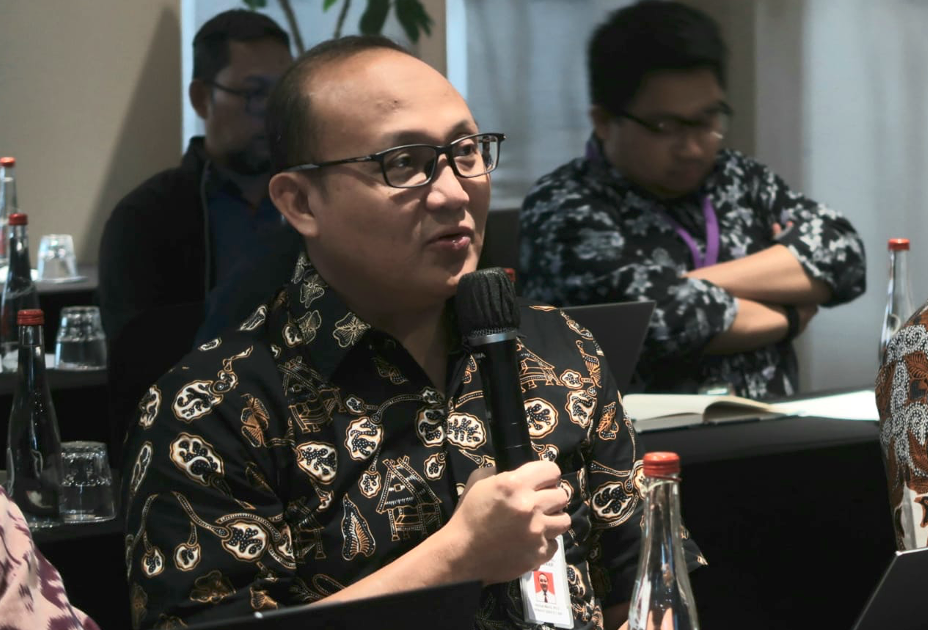The Indonesian government has set a commitment to reduce carbon emissions by 31.89% with its own efforts or 43.2% with international assistance by 2030. This target is to be achieved through deployment of various renewable energy, one of which is green hydrogen. To support the effort, ExploRE collaborated with the Ministry of National Planning (Bappenas) to initiate a thematic study on green hydrogen development. This study was also conducted in collaboration with the Directorate of Various New Renewable Energy, the Ministry of Energy and Mineral Resources, and the Center for Energy Studies of Gadjah Mada University.
Hydrogen utilisation is not uncommon in Indonesia. Hydrogen consumption in the domestic industrial sector in 2020 reached 87.1 million tons. However, most of the utilised hydrogen comes from the steam reforming process of fossil fuels (natural gas). The process of utilizing and producing this type of hydrogen contributes to carbon emissions in significant amounts, and potentially doubling in the next decade. Hence, this study is expected to accelerate the use of hydrogen with lower carbon emissions.

The Indonesian government has set a commitment to reduce carbon emissions by 31.89% with its own efforts or 43.2% with international assistance by 2030. This target is to be achieved through deployment of various renewable energy, one of which is green hydrogen. To support the effort, ExploRE collaborated with the Ministry of National Planning (Bappenas) to initiate a thematic study on green hydrogen development. This study was also conducted in collaboration with the Directorate of Various New Renewable Energy, the Ministry of Energy and Mineral Resources, and the Center for Energy Studies of Gadjah Mada University.
Hydrogen utilisation is not uncommon in Indonesia. Hydrogen consumption in the domestic industrial sector in 2020 reached 87.1 million tons. However, most of the utilised hydrogen comes from the steam reforming process of fossil fuels (natural gas). The process of utilizing and producing this type of hydrogen contributes to carbon emissions in significant amounts, and potentially doubling in the next decade. Hence, this study is expected to accelerate the use of hydrogen with lower carbon emissions.
Quoting Nizhar Marizi, Bappenas Director for Energy, Mineral and Mining Resources, during the kick-off meeting to commence the thematic study on 17 May 2023 in Jakarta, the three main aspects expected through the implementation of this study are comprehensive considerations for policy formulation, preparation of regulations in the upstream sector, production, distribution, and utilization, as well as institutional aspects in the use of green hydrogen. ExploRE Principal Advisor, Dody Setiawan, also mentioned the importance of the learning exchange process with other countries that already have good practices in utilizing green hydrogen.
A follow-up activity was organized on Thursday, 20 July 2023 to collect input and recommendation from various perspectives, including those from the Coordinating Ministry of Maritime and Investment (Kemenko Marves), Ministry of Energy and Mineral Resources (KESDM), Ministry of Industry (Kemenperin), National Energy Council (DEN), National Research and Innovation Agency (BRIN), state-owned enterprises (SOEs), as well as other non-government entities.
Green hydrogen itself is produced through electrolysis process using electricity sourced from renewable energy. Green hydrogen and its derivative products such as green ammonia and green methanol produce much lower carbon emissions than similar products produced from fossil fuels. Green hydrogen and its various derivative products also have great potential to substitute fossil fuels in the industrial sector (fertilizer and steel) and the long-distance transportation sector (long-haul). Green hydrogen has become a global interest and is developed by many countries to achieve decarbonization targets. Therefore, the Thematic Study of Green Hydrogen Development in Indonesia can be one of the important references for the domestic green hydrogen development plan and the formulation of the National Medium-Term Development Plan (RPJMN) 2025 – 2029.
Link to Further Materials
–
Contact Person
Dody Setiawan
Key Buzzwords
green hydrogen, national planning
